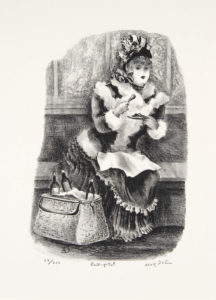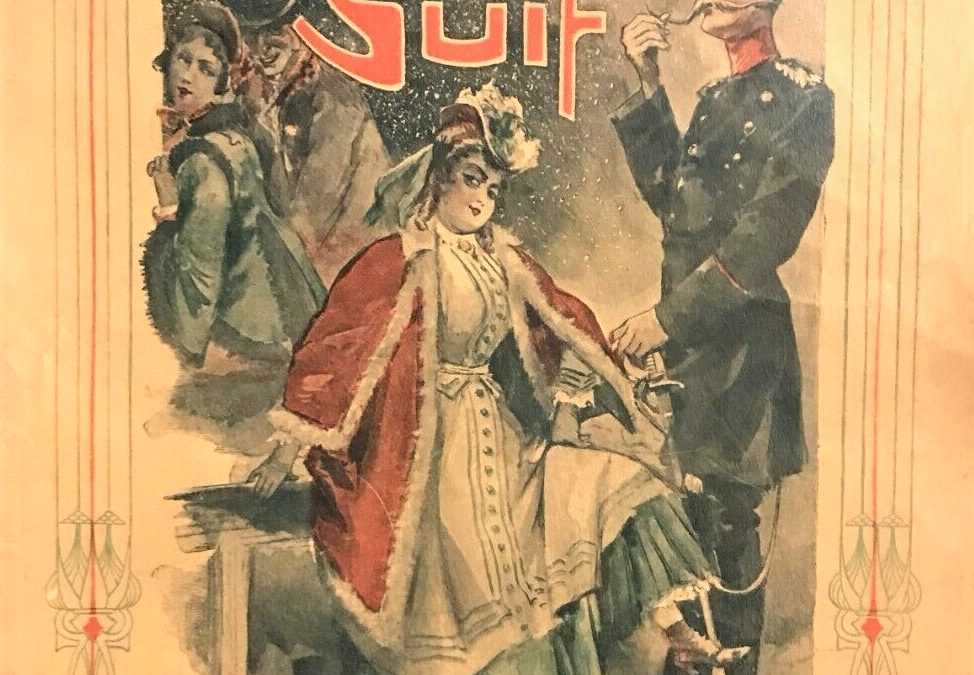De Maupassant knows that the picnic of this story is not the picnic you expect. Instead of grass, the setting is s a four-horse coach carrying ten passengers fleeing the Prussian army advancing on Rouen for safety at Le Havre. Instead of being congenial, all but one of the passengers are mean-spirited and hypocritical. The exception is Elizabet Rousett, a prostituée with a good heart nicknamed Boule de Suif, Ball of Fat.
Picnics ought to be happy, but de Maupassant’s is disconsolate. Instead of a perfect day, it is cold and uncomfortable. Instead of a perfect day in summer, it’s a winter’s day.

Adolf Dehn. “Ball of Fire” (1945)
Considering her comfort, Rousset has prepared a picnic wicker full of food and wine for the journey, which she shares with others in the carriage. The narrator explains, “At last, at three o’clock, as they were amid an apparently limitless plain, with not a single village in sight, Boule de Suif stooped quickly and drew from underneath the seat a large basket covered with a white napkin.
From this, she extracted first a small earthenware plate and a silver drinking cup, then an enormous dish containing two whole chickens cut into joints and embedded in jelly. The basket was seen to contain other good things: pies, fruit, dainties of all sorts-provisions, in fine, for a three days’ journey, rendering their owner independent of wayside inns. The necks of four bottles protruded from among the food. She took a chicken wing, and began to eat it daintily, together with one of those rolls called in Normandy “Regence.”
All looks were directed toward her. An odor of food filled the air, causing nostrils to dilate, mouths to water, and jaws to contract painfully. The scorn of the ladies for this disreputable female grew positively ferocious; they would have liked to kill her, or throw, her and her drinking cup, her basket, and her provisions, out of the coach into the snow of the road below.”
When Rousset refuses to have sex with a Prussian officer, the passengers are denied safe passage to Le Havre. Despite moral bravery, the other passengers selfishly appeal to her (on patriotic grounds) to comply. After all, they argue that Rousset is a prostitute, so what she does is immoral.
For three days, Rousset adamantly refuses to compromise with the passengers and the Prussians. Only with a heavy heart does she relent. The consequence is disastrous. Instead of congratulating Rousett for her sacrifice, the passengers shun her. During the rest of the journey, Rousset, realizing she has been had, cries while the others devour their picnics. Only Cornudet, a democrat who did not defend Rousset, reacts by sarcastically singing the Marseilles while she sobs until the journey’s end.
See Guy de Maupassant. “Ball of Fat, Boule De Suif.” In Guy de Maupassant’s Short Stories, edited by trans. Marjorie Laurie. London: Dent/Everyman’s Library, 1934; Guy de Maupassant. Boule de suif. Illustrated by François Thevenot. Paris: Armand Magnier, 1897

